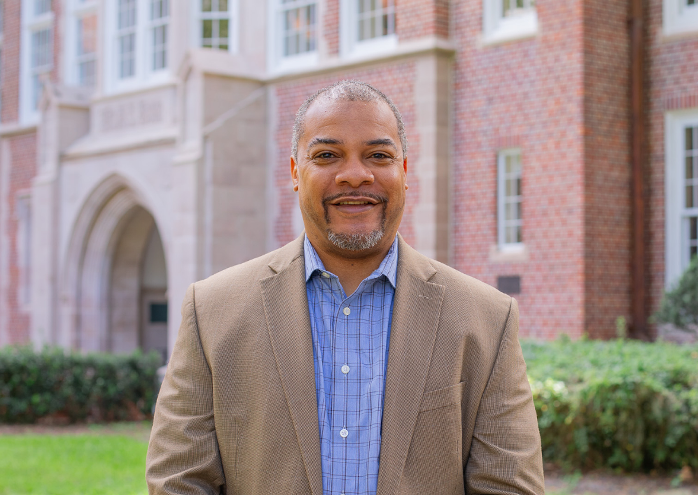Q & A with Rob Moore, Ph.D., Assistant Professor in the School of Teaching and Learning
What basic questions does your research seek to answer?
My research broadly attempts to answer, “What is happening in digital ecologies?” By digital ecologies, I mean any learning environment that is integrating technology. This would include a face-to-face classroom that is using PollEverywhere or Kahoot for engagement; or a massive open online course where tens of thousands of students are engaged in asynchronous discussions; or an online graduate-level course. As we are seeing advances in technology and online learning, understanding learner experiences within these digital ecologies is critical to ensuring that we are creating positive learning experiences. My research looks at the experiences of learners and the tools and resources being used by the learners. Are the tools being used in the way that the instructor intended? Are they producing the outcomes that the instructor wanted? To answer these questions, I leverage techniques including cluster analysis and multilevel modeling that allow me to ask questions such as, “How is learning supported in the environment?” or “How are learners engaging within the environment?” By using this human-centered approach, my research can identify ways to map learner outcomes to the effective design and delivery approaches within these ecologies.
What makes your work interesting?
I have always been fascinated with technology and gadgets, and I am fortunate that my work allows me to fully embrace this. I love that technology is evolving, and there is always a new way to be innovative in our integration of technology into education. If COVID-19 has taught us anything, we have seen there is a need for effective pedagogy for online instruction; and failure to attend to learner needs can have disastrous effects on achieving learner achievement and satisfaction. Every day, I have a new challenge to tackle, and that is super interesting to me. I have always been a process thinker — figuring out how something works and then finding ways to improve that process. Those are all aspects I integrate into my research to keep the work moving forward. I am looking forward to expanding the reach of my research through interdisciplinary collaborations with my new colleagues at UF and in the Institute of Advanced Learning Technologies (IALT).
What are you currently working on?
I am currently Co-PI of the NSF-funded LASER Institute. This institute, which had its first cohort this summer, seeks to increase early- and mid-career scholars’ abilities to leverage learning analytics to examine research focused on STEM education and equity. Together with the project team, I am working with the first cohort in creating an online community. Then in the spring, the project team will begin planning and recruiting for the second cohort that will join us in the summer. At UF, I am working on launching the IDEATE (Investigating Digital Ecologies to Advance Transformative Education) Research Lab. My vision for the lab is evolving, but I hope to be able to use this lab as a conduit for innovative research to explore digital learning ecologies. There are so many exciting opportunities for research in this space, and I want to foster that exploration through the IDEATE Research Lab. Ultimately, I will be building an interdisciplinary team of faculty and graduate students interested in applying principles of design thinking grounded in reflective inquiry to uncover adaptive and innovative solutions to complex problems within all levels of education, and our work will intersect well with the AI at UF Initiative. Through our use of learning analytics techniques, the IDEATE Research Lab will explore the dynamics of digital spaces and identify, evaluate, and design effective instructional approaches to support student success. If any of this interests you or aligns with your work, please reach out! One of the first projects that the IDEATE Research Lab will study will be MicroMasters, an emerging evolution of MOOCs, where learners can complete a series of MOOCs and earn graduate school credit hours. I am identifying funding opportunities to fund this research — stay tuned! I am also recruiting prospective doctoral students who want to join the Educational Technology PhD Program and work in the IDEATE Research Lab, so spread the word!

